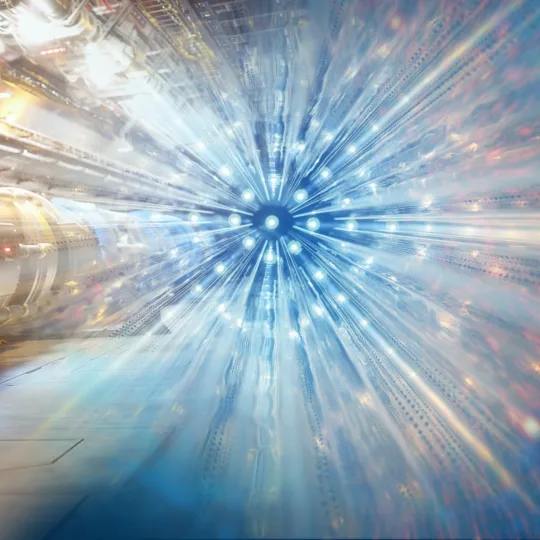Celebrating ESA’s 50th anniversary
The ESA will celebrate its 50th anniversary in 2025. Looking back on countless milestones, it is now preparing itself for a challenging future. The ESA has positioned Europe as a global leader in the space sector. A founding member, Switzerland has been both a contributor and beneficiary in this development.

In 1975, ten founding states signed the Convention for the establishment of a European Space Agency, thus laying the foundation for European success in space. Switzerland was on board from the outset as a founding member and continues to conduct most of its space activities through the ESA.
We can be proud of what we have attained together with our European partners. Over the past fifty years, the ESA has experienced many momentous occasions that could best be described as ‘happiness reigns’. This memorable quote was made by Federal Councillor Adolf Ogi in 1992 in a live link call to the International Space Station (ISS) to congratulate Switzerland's first astronaut in space, Claude Nicollier.
While an exhaustive list of these accomplishments would go beyond the scope of this article, I would like to highlight a few outstanding ones. First of all, it is thanks to the foresight of the organisation's founding states that Europe now has independent access to space with the Ariane rocket (now in its sixth generation) and the Vega C launcher. Secondly, the ESA has explored practically all the planets in our solar system, either on its own or in collaboration with partners such as the US National Aeronautics and Space Administration (NASA). It landed a space probe on Saturn's moon Titan in 2005 and landed another one, in spectacular fashion, on the Churyumov-Gerasimenko comet in 2014. More recently, an ESA space probe is currently headed to Mercury while another is on its way to Jupiter. The ESA has also a major impact on our day-to-day existence. We use ESA-developed systems and related data every day, whether it be in the fields of meteorology, environmental monitoring, telecommunications or navigation.
To put things differently, we could ask ourselves the question: Where would Europe and Switzerland be today without the ESA? We would probably not be one of the global leaders in space exploration and, as in other technologically innovative areas, we would probably see a high degree of fragmentation in Europe. In research, we would be heavily dependent on a few national space agencies and our industry would probably not be able to compete with cutting-edge technologies. The ESA model has proven its worth. It fosters scientific and industrial competitiveness while at the same time ensuring a return on investment for its 23 member states. In Switzerland, work with the ESA has led to the emergence of an ecosystem comprised of several hundred research and industry participants. These partners make unique contributions to ESA programmes, producing such things as scientific instruments and rocket components. Switzerland derives both scientific and economic benefits from this cooperation. The space sector is truly a source of prosperity.
While we have every reason to celebrate, we should not rest on our laurels! Major challenges lie ahead. The space sector is growing in leaps and bounds, bringing efficiency gains with it. Technology is advancing at a rapid pace. Global competition is intensifying. I think that over the next fifty years, humans will indeed set foot on Mars and perhaps even live and work on the Moon for extended periods of time. It is also likely that we will discover signs of life on other planets, perhaps even in our own solar system.
The ESA Strategy 2040 shows the way forward. It focuses on autonomy, resilience, growth and competitiveness. The aim is not only to explore the universe, but also to protect Earth, the only habitable planet we know of so far. The next fifty years promise to be just as exciting as the past five decades. With the ESA's support, Switzerland intends to remain at the forefront of future developments – or, in space parlance, up there among the stars.


